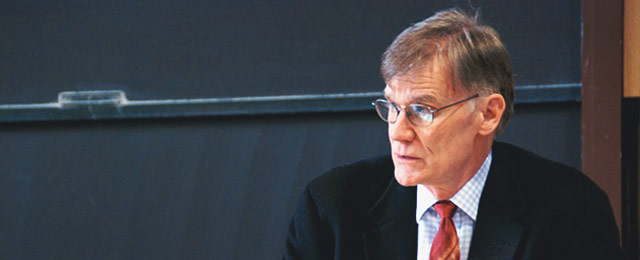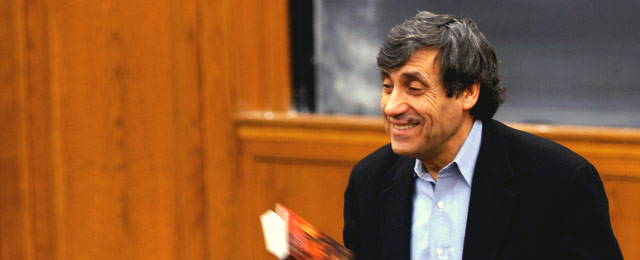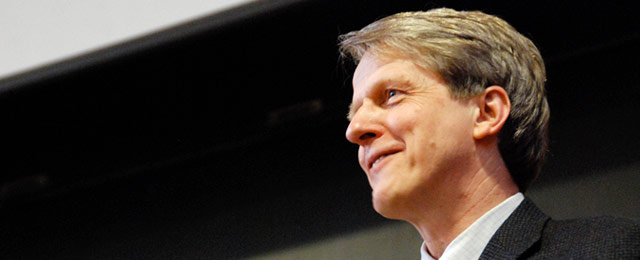Online courses directory (457)
This is a seminar course that explores the history of selected features of the physical environment of urban America. Among the features considered are parks, cemeteries, tenements, suburbs, zoos, skyscrapers, department stores, supermarkets, and amusement parks. The course gives students experience in working with primary documentation sources through its selection of readings and class discussions. Students then have the opportunity to apply this experience by researching their own historical questions and writing a term paper.
This course explores the causes, course, and consequences of the American Civil War, from the 1840s to 1877. The primary goal of the course is to understand the multiple meanings of a transforming event in American history. Those meanings may be defined in many ways: national, sectional, racial, constitutional, individual, social, intellectual, or moral. Four broad themes are closely examined: the crisis of union and disunion in an expanding republic; slavery, race, and emancipation as national problem, personal experience, and social process; the experience of modern, total war for individuals and society; and the political and social challenges of Reconstruction.
In this course, we will study the emergence of the major civilizations of the ancient world, beginning with the Paleolithic Era (about 2.5 million years ago) and finishing with the end of the Middle Ages in fifteenth century A.D. We will pay special attention to how societies evolved across this expanse of time
The course is an introduction to Dante and his cultural milieu through a critical reading of the Divine Comedy and selected minor works (Vita nuova, Convivio, De vulgari eloquentia, Epistle to Cangrande). An analysis of Dante's autobiography, the Vita nuova, establishes the poetic and political circumstances of the Comedy's composition. Readings of Inferno, Purgatory and Paradise seek to situate Dante's work within the intellectual and social context of the late Middle Ages, with special attention paid to political, philosophical and theological concerns. Topics in the Divine Comedy explored over the course of the semester include the relationship between ethics and aesthetics; love and knowledge; and exile and history.
In this era of globalization, many of us have multi- or bi-cultural, multilingual or bilingual backgrounds, and even if we don't have such a background, we need urgently to understand the experiences of people who do. You will very likely work outside the United States at some point in your future; you will almost certainly work with people who speak more than one language, whose ancestry or origins are in a country other than the U.S., who have crossed borders of nation, language, culture, class to amalgamate into the large and diverse culture that is America. In this class we will read the personal narratives of bilingual and bicultural writers, some of whom have struggled to assimilate, others of whom have celebrated their own contributions to a culture of diversity. You will write four personal essays of your own for the class, each of which will receive workshop discussion in class and response from me; you will then revise the essays to polish them for possible publication. One of your essays will be an investigative one, where you will focus on a subject of your choice, investigate it thoroughly, and then write with authority about it. The process of the class will encourage you to both improve your writing significantly and gain a greater understanding of experiences of people who are in some way like you as well as those who are in some way different.
Financial institutions are a pillar of civilized society, supporting people in their productive ventures and managing the economic risks they take on. The workings of these institutions are important to comprehend if we are to predict their actions today and their evolution in the coming information age. The course strives to offer understanding of the theory of finance and its relation to the history, strengths and imperfections of such institutions as banking, insurance, securities, futures, and other derivatives markets, and the future of these institutions over the next century.
Learn how philosophy, art, literature, and history shaped the last century and the world today.
This course is an introduction to modern Indian culture and society through films, documentaries, short stories, novels, poems, and journalistic writing. The principal focus is on the study of major cultural developments and social debates in the last sixty five years of history through the reading of literature and viewing of film clips. The focus will be on the transformations of gender and class issues, representation of nationhood, the idea of regional identities and the place of the city in individual and communal lives. The cultural and historical background will be provided in class lectures. The idea is to explore the "other Indias" that lurk behind our constructed notion of a homogeneous national culture.
This course examines traditional performances of the Arabic-speaking populations of the Middle East and North Africa. Starting with the history of the ways in which the West has discovered, translated and written about the Orient, we will consider how power and politics play roles in the production of culture, narrative and performance. This approach assumes that performance, verbal art, and oral literature lend themselves to spontaneous adaptation and to oblique expression of ideas and opinions whose utterance would otherwise be censorable or disruptive. In particular we will be concerned with the way traditional performance practices are affected by and respond to the consequences of modernization.
Topics include oral epic performance, sacred narrative, Koranic chant performance, the folktale, solo performance, cultural production and resistance.
This course examines the American experience at home and abroad from Pearl Harbor to the end of the Cold War. Topics include: America's role as global superpower, foreign and domestic anticommunism, social movements of left and right, suburbanization, and popular culture.
This will be a seminar on classic and contemporary work on central topics in ethics. The first third of the course will focus on metaethics: we will examine the meaning of moral claims and ask whether there is any sense in which moral principles are objectively valid. The second third of the course will focus on normative ethics: what makes our lives worth living, what makes our actions right or wrong, and what do we owe to others? The final third of the course will focus on moral character: what is virtue, and how important is it? Can we be held responsible for what we do? When and why?
A basic level survey of painting, sculpture, and architecture.
What is a "life" when it's written down? How does memory inform the present? Why are autobiographies and memoirs so popular? This course will address these questions among others, considering the relationship between biography, autobiography, and memoir and between personal and social themes. We will examine classic authors such as Mary Rowlandson, Benjamin Franklin, Frederick Douglass, Harriet Jacobs, and Mark Twain; then more recent examples like Tobias Wolff, Art Spiegelman, Sherman Alexie, Shirley Geok-lin Lim, Edwidge Danticat, and Alison Bechdel.
Bootcamp for NGO Reps, Global Citizens & Interns Leading Change At The UN & Intergovernmental Meetings
This course has two parallel aims:
- To improve student writing about technical subject matters, including forms of writing commonly employed in technical organizations, and
- Critically to examine the nature of technologically-assisted communication, focusing somewhat on professional communication among scientists and engineers. We will often combine these two goals, by practicing critical investigation of communications technologies in written formats (and other media) that employ communications technologies.






















